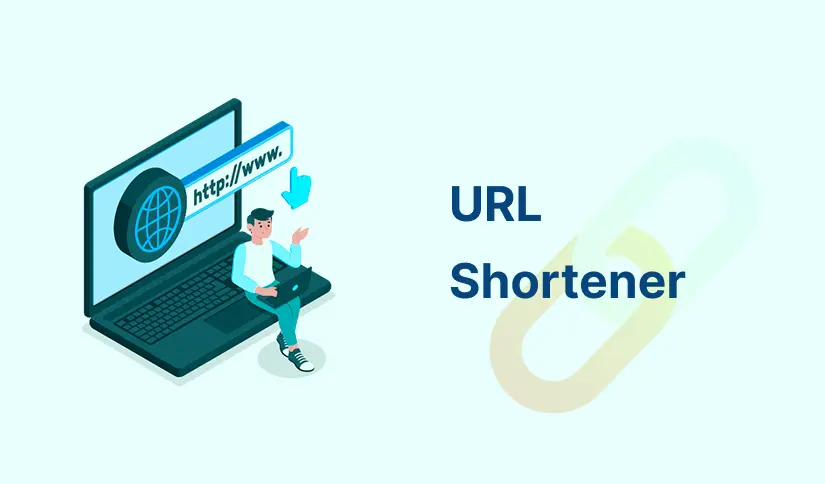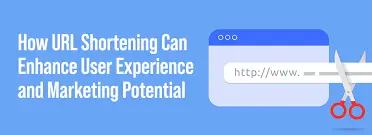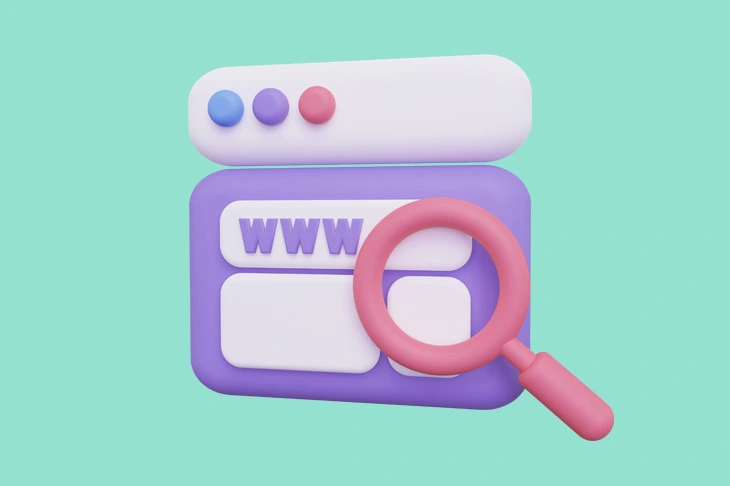
Ever tried to share a super long URL on social media but ran out of characters? Or maybe you just want to make your links look cleaner and more professional.
That’s where URL shorteners come in! They’re like magic wands that transform those lengthy links into tiny, easy-to-remember versions. Let’s dive into how these nifty tools can enhance your online experience.
Contents
- What Are URL Shorteners?
- The Benefits of Using URL Shorteners
- How URL Shorteners Affect User Experience
- Mobile-Friendliness and URL Shorteners
- Customization Features of URL Shorteners
- The Role of URL Analytics
- Security Concerns Around URL Shorteners
- The Role of URL Shorteners in Digital Marketing
- SEO Implications of Using URL Shorteners
- How URL Shorteners Improve Social Media Sharing
- URL Shorteners and Email Marketing
- Case Studies: Businesses Using URL Shorteners Effectively
- Free vs. Paid URL Shortening Services
- Future Trends in URL Shortening
- Conclusion
- FAQs
What Are URL Shorteners?
URL shorteners are tools that take long web addresses and compress them into shorter, more manageable links. These shortened links are easier to share and can fit neatly into social media posts, emails, or text messages.
For instance, instead of sharing a URL like www.longwebsitelink.com/this-is-a-really-long-link-with-lots-of-characters, a URL shortener like Shorturlat or TinyURL turns it into something like shorturlat.tech/shortlink. This simple change makes sharing URLs more efficient and less cluttered. Plus, URL shorteners often come with customization options, so you can create a branded or personalized link.

The Benefits of Using URL Shorteners
Why should anyone bother shortening URLs? Let’s look at some of the key advantages:
- Improved Aesthetics of Links: No one enjoys looking at a messy, long link. A short, neat link makes content look cleaner and more professional.
- Easier Sharing on Social Media: Social media platforms like Twitter have character limits. URL shorteners save space, leaving more room for your message.
- Enhanced User Engagement: A shorter URL is easier to read, remember, and type. This means users are more likely to click and engage with the content.
In addition, branded short URLs can enhance trust, leading users to feel more comfortable clicking them, which can boost engagement even further.
How URL Shorteners Affect User Experience
The impact of URL shorteners on user experience (UX) goes beyond just appearance. These shortened links can make the internet easier to navigate.
- Simplifying Link Management: Keeping track of long URLs can be confusing, especially for businesses managing multiple links. Shortened URLs are easier to manage and organize.
- Boosting Click-Through Rates (CTR): Shortened links often lead to better CTRs because they appear more user-friendly and trustworthy. Studies show that users are more likely to click a shortened link over a long, clunky one.
When users have a positive interaction with a brand’s links, they’re more likely to return. So, URL shorteners contribute directly to user satisfaction and loyalty.
Mobile-Friendliness and URL Shorteners
With the rise of smartphones, mobile-friendliness has become crucial. Long URLs can be hard to click on mobile devices, where space is limited.
- Making Links More Accessible on Mobile Devices: Shortened URLs are easier to tap on a mobile screen, reducing frustration for users trying to navigate on smaller devices.
- Enhanced Scanning and Navigation: Shortened URLs also make it easier for users to scan and identify links quickly, improving the overall mobile experience. When users feel comfortable on mobile devices, they’re more likely to stay engaged with your content.
Customization Features of URL Shorteners

One of the biggest perks of URL shorteners is the ability to create custom, branded links. These are especially useful for businesses trying to build a recognizable brand.
- Creating Branded Links: Branded links, like
yourbrand.link/specialoffer, look professional and give users confidence that the link is legitimate. - Adding Personalization to Enhance Recognition: Custom URLs make your brand stand out. When users recognize your brand’s name in a link, they’re more likely to click, helping you build trust and loyalty.
A personalized link also makes it easier for users to remember where the link leads, which enhances their overall experience.
The Role of URL Analytics
URL shorteners often come with built-in analytics, providing insights into user behavior. You can track how many people clicked on a link, where they came from, and when they clicked.
- Tracking User Behavior: Analytics helps businesses understand how users interact with links. This data can guide future decisions, like which platforms to focus on or which content resonates most.
- Using Analytics to Improve Engagement: By tracking how users respond to shortened links, you can tweak your strategy to improve engagement. This is a powerful tool for marketers looking to optimize their campaigns.
Security Concerns Around URL Shorteners
While URL shorteners offer many benefits, they also come with potential risks. One major concern is the possibility of malicious links.
- The Risk of Malicious Links: Shortened links hide the full URL, making it easy for scammers to disguise harmful websites. Users may hesitate to click a shortened link if they don’t know where it leads.
- How to Ensure Safe URL Shortening: To counteract this, most reputable URL shorteners offer link previews or security checks. Always use a trustworthy service and avoid clicking on suspicious shortened links to protect yourself from online threats.
The Role of URL Shorteners in Digital Marketing
In digital marketing, URL shorteners can be game changers. Short links are perfect for campaigns across social media, email, and other platforms.
- How Short Links Improve Marketing Campaigns: Shortened URLs are easier to share and track, which can help marketers measure the success of their campaigns. They also provide a cleaner, more appealing way to present links in ads or posts.
- Enhancing Brand Image: Branded short links improve the overall image of a business, helping to maintain a professional and cohesive brand across different channels.
SEO Implications of Using URL Shorteners
Many wonder if using URL shorteners affects SEO. While shortened links don’t directly impact SEO rankings, they can still play an important role.
- How Shortened Links Affect SEO: Shortened links that use 301 redirects ensure that the full URL still gets credit for any backlinks, preserving the SEO benefits.
- Best Practices for SEO with Short URLs: Always choose a URL shortener that uses 301 redirects to avoid losing out on SEO. Also, avoid overusing shortened links, especially on your own website, as this can look spammy.
How URL Shorteners Improve Social Media Sharing
Social media platforms thrive on concise, clear messages, and URL shorteners are essential for that.
- Short Links on Twitter, Instagram, and Facebook: On platforms like Twitter, where every character counts, shortened links save valuable space, allowing for more engaging content.
- Simplifying Link Sharing Across Platforms: Shortened URLs are not just about saving space—they also make it easier to share links across multiple platforms, keeping the content consistent and easy to digest.
URL Shorteners and Email Marketing
In email marketing, a neat, trustworthy link can be the difference between a click and a delete.
- Improving Email Click-Through Rates: Shortened URLs are less intimidating and more likely to be clicked. They make emails look cleaner, improving the overall user experience.
- Making Links Look Clean and Trustworthy: With branded or customized short URLs, businesses can further boost trust with their audience. When users trust the links they see, they’re more likely to engage with the content.
Case Studies: Businesses Using URL Shorteners Effectively
Many companies have mastered the use of URL shorteners. Let’s look at some examples:
- Bit.ly and Digital Marketing: Bit.ly offers analytics and customization options that have helped many brands streamline their marketing campaigns.
- Hootsuite and Social Media: Hootsuite uses its own URL shortener to track clicks and engagement across multiple social platforms, providing detailed insights for marketers.
These case studies show the real-world impact of URL shorteners and how they can enhance both marketing efforts and user experience.
Free vs. Paid URL Shortening Services
There are plenty of free URL shorteners out there, but paid versions offer more features.
- Comparing Features and Benefits: Free services are great for basic use, but paid options often include features like advanced analytics, custom domains, and enhanced security.
- Choosing the Right Option for Your Needs: If you’re running a large-scale campaign, the added benefits of a paid service can be well worth the investment.
Future Trends in URL Shortening
The future of URL shortening is bright, with new trends and technologies emerging.
- Integration with AI and Automation: As artificial intelligence (AI) becomes more prevalent, we can expect to see smarter URL shorteners that adapt to user behavior and optimize links automatically.
- Enhanced Personalization and Data Insights: Future URL shorteners may offer even deeper insights into user behavior, helping businesses tailor their content for better engagement.
Conclusion
So, can URL shorteners enhance user experience? Absolutely. They offer a cleaner, more efficient way to share links, improve mobile accessibility, and boost engagement on social media.
With added customization, branding, and analytics features, URL shorteners are a valuable tool for anyone looking to streamline their online presence and connect more effectively with users.
FAQs
-
What Are the Downsides of Using URL Shorteners?
Some risks include the potential for malicious links and the lack of transparency for users, but using trusted services can minimize these concerns.
-
Can I Use a URL Shortener for Free?
Yes, many services offer free versions, though paid options often come with advanced features like branded links and detailed analytics.
-
Are URL Shorteners Safe for Business Use?
Absolutely! As long as you use a reputable service and follow best practices, URL shorteners are safe and beneficial for business use.
Leave a Reply